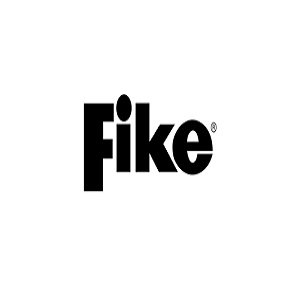Just an hour of unexpected downtime can equal millions in lost revenues to processing and manufacturing facilities. To protect against this unplanned downtime, predictive maintenance is essential, especially for facilities that handle combustible dust.
That’s why, Fike Corporation launched Fike Field Service powered by VLR – a new software designed to minimize costly emergency maintenance of Fike customers’ explosion protection devices.
Origins of Fike’s Field Service
Service Supervisor Kris Vermeiren began Fike’s original field service program on explosion protection equipment 25 years ago in Europe. Vermeiren developed a database used to manually track all Europe field service requests in one localized spot, and it’s been used by the Fike Europe team ever since.
Fike team began to design a system that could use predictive technologies to combat unplanned downtime
However, as effective as the system has been, Vermeiren and the rest of the Fike team knew it was time to digitally transform the service platform to match Fike’s quality of service. They began to design a system that could use predictive technologies to combat unplanned downtime.
“Kris’ database has been a great system, and now we are taking the next step in our platform evolution by digitally transforming service at Fike,” said Chad Lowman, Fike’s Digital Strategist.
Data accessibility
Fike Field Service powered by VLR will revolutionize data accessibility for all service technicians and will benefit customers in several exciting ways.
A certified technician/engineer performs the service work order and collects various values of Fike assets, such as circuit resistances or the status of pressure detectors. This data is tracked historically, so the technician/engineer can view any installed Fike asset and its associated values in a graphical format.
Working of Fike Field Service
If an asset is losing pressure or degrading, the technician/engineer will identify that trend line and may forecast that it could fail over the next few years.
This allows Fike to present up-to-date information to customers, which may indicate there’s an opportunity the equipment may fail soon and will have the data to support it. Maintenance may then be scheduled during convenient hours for the customer and will ensure Fike engineers/technicians are properly equipped with all the information and parts to successfully do the work.
Reducing unplanned downtime
We can help the customer reduce unplanned downtime by identifying equipment degradation" “If the customer has unplanned downtime due to a failure, they want a technician on site right away to perform emergency maintenance,” Rockwell said.
“But with this historical trend data, we can help the customer reduce unplanned downtime by identifying equipment degradation and scheduling maintenance before a surprise occurs.”
Predictive maintenance
The goal is to offer Fike customers peace of mind, knowing Fike’s field service is equally as reliable as its products.
“It’ll make both our technicians’ and customers’ lives a lot easier,” Vermeiren said. “Using predictive maintenance, we can anticipate what’s happening to drastically minimize downtime and eliminate surprise events, and support our customers both better and faster.”

















